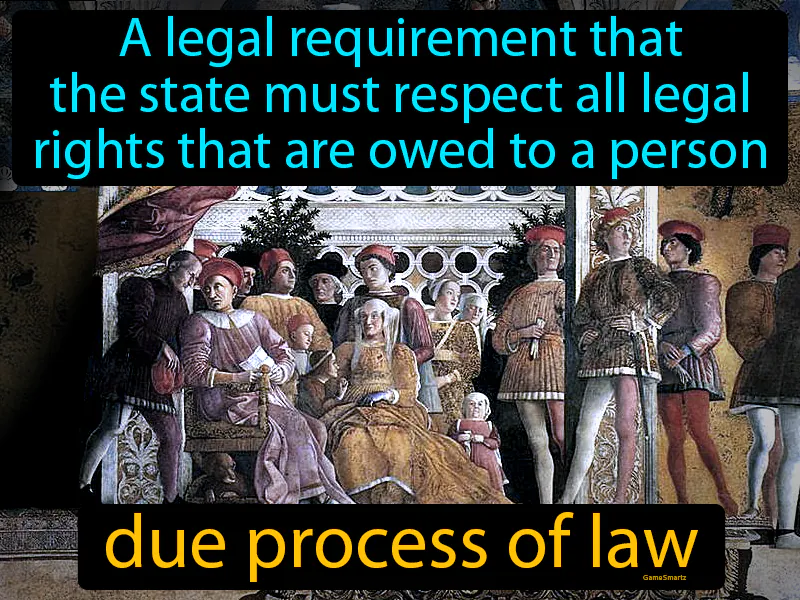Due Process Of Law
Due Process Of Law: Easy to understand
During the High and Late Middle Ages, the concept of due process of law began to take shape as monarchs and governments recognized the need to follow fair legal procedures, particularly in England with the Magna Carta of 1215. This document demanded that the king respect certain legal rights, which was important to prevent the abuse of power and arbitrary punishment. The idea responded to problems of rulers making decisions without any checks, leading to unfair treatment and persecution. Today, due process remains crucial as it ensures that everyone is treated fairly in legal matters, safeguarding individual rights. For example, if someone is accused of a crime, due process guarantees they receive a fair trial, access to a lawyer, and the opportunity to defend themselves, protecting them from wrongful convictions.

Practice Version

Due Process Of Law: A legal requirement that the state must respect all legal rights that are owed to a person. Due process of law. In History, due process of law is the principle that ensures fair treatment through the judicial system.